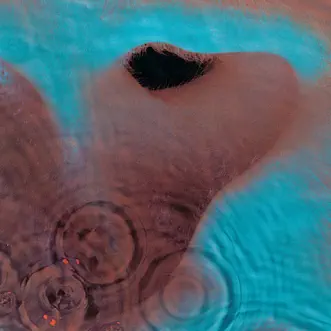About Meddle by Pink Floyd Album
Meddle is a classic Pink Floyd album recorded and released in 1971, which contains Echoes, one of their longest compositions. A few tibits of information about this album: The song "Echoes" was the entire side B of Meddle. "Echoes" was also featured on the Pink Floyd feature length, crowd-less show video, titled "Live at Pompeii" The lyrics of the song "One Of These Days" has only one sentence and it was spoken as opposed to being sung. That Line was : "One of these days I am going to cut you up into little pieces" . The song "Seamus" was used as the opening credits music for the independent Film "Rosencrantz And Guilenstern Are Dead", starring Gary Oldman and Tim Roth. This fictional film was based on the 1970's play of the same title. In the song San Tropez, there is a reference to eating a peach on a sofa and playing a particularly favorite guitar of Roger Waters, a Gibson Country Style. With no material to work with and no clear idea of the album's direction, the group devised a series of novel experiments which eventually inspired the album's signature track, "Echoes". Although many of the band's later albums would be unified by a central theme with lyrics written mainly by Roger Waters, Meddle was a group effort with lyrical contributions from each member, and is considered a transitional album between the Syd Barrett-influenced group of the late 1960s and the emerging Pink Floyd. The cover, incorporating a close-up shot of an ear underwater was, as with several previous albums, designed by Hipgnosis, though Storm Thorgerson was unhappy with the final result. The album was well received by music critics upon its release. However, despite being commercially successful in the United Kingdom, lackluster publicity on the part of their United States-based label led to poor sales there upon initial release (though it would eventually be certified 2x Platinum as the band's popularity increased). Returning from a series of tours across America and England in support of Atom Heart Mother, at the start of 1971 Pink Floyd commenced work on new material at Abbey Road Studios in London. At the time, Abbey Road was equipped only with eight-track multitrack recording facilities, which the band found insufficient for the increasing technical demands of their project. They transferred their best efforts, including the opening of what became "Echoes", to 16-track tape at smaller studios in London (namely AIR, and Morgan in West Hampstead) and resumed work with the advantage of more flexible recording equipment. Engineers John Leckie and Peter Bown recorded the main Abbey Road and AIR sessions, while for minor work at Morgan, Rob Black, Wayne Gregory and Roger Quested handled the engineering duties. Lacking a central theme for the project, the band used several experimental methods in an attempt to spur the creative process. One exercise involved each member playing on a separate track, with no reference to what the other members were doing. The tempo was entirely random while the band played around an agreed chord structure, and moods such as "first two minutes romantic, next two up tempo". Each recorded section was named, but the process was largely unproductive; after several weeks, no complete songs had been created. Leckie had worked on albums such as George Harrison's All Things Must Pass and Ringo Starr's Sentimental Journey, and was employed as a tape-operator on Meddle, partly for his proclivity for working into the early hours of the morning. He has said that Pink Floyd's sessions would often begin in the afternoon, and end early the next morning, "during which time nothing would get done. There was no record company contact whatsoever, except when their label manager would show up now and again with a couple of bottles of wine and a couple of joints." The band would apparently spend long periods of time working on simple sounds, or a particular guitar riff. They also spent several days at AIR attempting to create music using a variety of household objects, a project which would be revisited between their next albums, The Dark Side of the Moon and Wish You Were Here. Following these early experiments – called Nothings – the band developed Son of Nothings, which was followed by Return of the Son of Nothings – the working title of the new album. One of these early works involved the use of Richard Wright's piano. Wright had fed a single note through a Leslie speaker, producing a submarine-like ping. The band tried repeatedly to recreate this sound in the studio but were unsuccessful, and so the demo version was used on what would later become "Echoes", mixed almost exclusively at AIR Studios. Combined with David Gilmour's guitar, the band were able to develop the track further, experimenting with accidental sound effects (such as Gilmour's guitar being plugged into a wah-wah pedal back to front). Unlike with Atom Heart Mother, the new multi-track capabilities of the studio enabled them to create the track in stages, rather than performing it in a single take. The final, 23-minute piece would eventually take up the entire second side of the album. "One of These Days" was developed around an ostinato bassline created by Roger Waters, by feeding the output through a Binson Echorec. The bass line was performed by Waters and Gilmour using two bass guitars, one on old strings. Drummer Nick Mason's abstruse "One of these days I'm going to cut you into little pieces" line was recorded at double speed using a falsetto voice, and replayed at normal speed. Meddle was recorded between the band's various concert commitments, and therefore its production was spread over a considerable period of time. The band recorded in the first half of April 1971, but in the latter half played at Doncaster and Norwich before returning to record at the end of the month. In May they split their time between sessions at Abbey Road, and rehearsals and concerts in London, Lancaster, Stirling, Edinburgh, Glasgow and Nottingham. June and July were spent mainly performing at venues across Europe. August was spent in the far east and Australia, September in Europe, and October to November in the US. In the same period, the group also produced Relics, a compilation album of some of Pink Floyd's earlier works. A quadraphonic mix of the album was prepared at Command Studios on 21 and 26 September, but remains unreleased. Although the tracks possess a variety of moods, Meddle is generally considered more cohesive than its 1970 predecessor, Atom Heart Mother. The largely instrumental "One of These Days" is followed by "A Pillow of Winds", which is distinguished by being one of the few quiet, acoustic love songs in the Pink Floyd catalogue. These two songs segue into each other across windy sound effects, anticipating the technique that would later be used on Wish You Were Here. The title of "A Pillow of Winds" was inspired by the games of Mahjong that Waters and Mason, and their wives, played while in the south of France. The song "Fearless" employs field recordings of the Liverpool F.C. Kop choir singing "You'll Never Walk Alone", their anthem, which brings the song to an end in a heavily reverberated fade-out. "San Tropez", by contrast, is a jazz-inflected pop song with a shuffle tempo, composed by Waters in his increasingly deployed style of breezy, off-the-cuff songwriting. The song was inspired by the band's trip to the south of France in 1970. Pink Floyd uncharacteristically displayed their sense of humour with "Seamus", a pseudo-blues novelty track featuring Steve Marriott's dog (which Gilmour was looking after) howling along to the music. "Seamus" often tops polls as the worst song Pink Floyd ever created, but the band would later use animal sounds again, in Animals. The final song on the album is the 23-minute "Echoes". First performed as "Return of the Son of Nothing" on 22 April 1971 in Norwich, the band spent about six months on the track in three studios (Morgan, AIR and Abbey Road). The track opens with Wright's "ping". "Echoes" was recorded almost entirely at Air Studios, and completed in July 1971. "Echoes" also gave its name to the compilation album Echoes: The Best of Pink Floyd, on which a much-edited version of the title track was included. On the compilation, multiple edits throughout the entire song cut the running length of the piece down by some seven minutes. Some of the material composed during the creation of Meddle was not used; however, one song would eventually become "Brain Damage", on The Dark Side of the Moon. "Echoes" was later featured in its entirety in the 1973 Australian surf film Crystal Voyager, filmed, written and narrated by surfer, photographer and filmmaker George Greenough during an extended section of slow-motion footage shot inside the curl of wave. In a retrospective review, Robert Christgau said Meddle was a fairly good progression over the group's previous work and featured folk songs highlighted by unique melodies, although he lamented the lyrics to "A Pillow of Winds": "The word 'behold' should never cross their filters again". In his critique of "Echoes", he believed the lyrics imitate "Across the Universe" by the Beatles but over 23 minutes of music that flows with a "timeless calm" similar to "Interstellar Overdrive". Daryl Easlea of BBC felt it is a similar, but more consistent and tuneful version of Atom Heart Mother highlighted by "Echoes", which he said "dominates the entire work" and is "everything right about progressive rock; engaging, intelligent and compelling". In The New Rolling Stone Album Guide (2004), Rob Sheffield said "Echoes" showed Pink Floyd to be a more developed group than before, "coloring the slow guitar ripples with deep-in-the-studio sonic details that only the truly baked would notice, much less appreciate." Writing for AllMusic, editor Stephen Thomas Erlewine called Meddle the best album from their transitional years leading up to The Dark Side of the Moon, as it "spends most of its time with sonic textures and elongated compositions, most notably on its epic closer, 'Echoes'". He noted a "uniform tone", but not song structure, and wrote of the album's significance in the group's catalogue: "Pink Floyd were nothing if not masters of texture, and Meddle is one of their greatest excursions into little details, pointing the way to the measured brilliance of Dark Side of the Moon and the entire Roger Waters era." David Gilmour – guitar, lead vocals, bass on "One of These Days", harmonica on "Seamus" Roger Waters – bass, lead vocals and acoustic guitar on "San Tropez" Richard Wright – Hammond organ, piano, co-lead vocals on "Echoes", Farfisa organ (uncredited) Nick Mason – drums, percussion, vocal phrase on "One of These Days"



